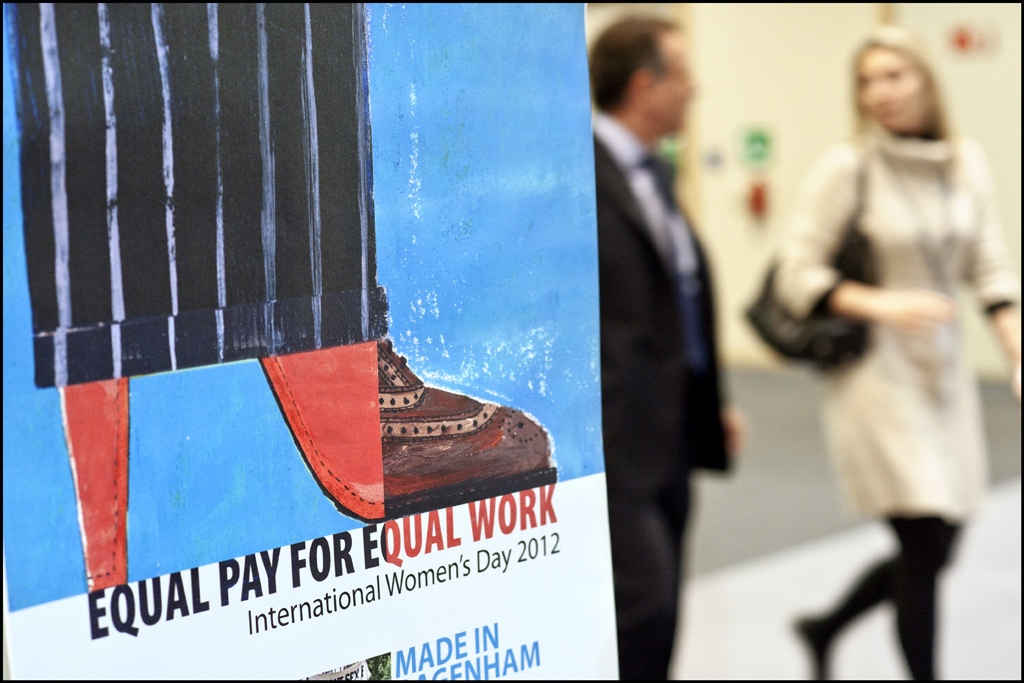It Is Completely Unsurprising That Women Avoid Promotions at Work

A group of women researchers at Harvard recently released the results of a study in PNAS with the title “Compared to men, women view professional advancement as equally attainable, but less desirable.” As the study title suggests, through a series of surveys they determined that women are less likely to desire a promotion or a high-powered position in their careers. This study has been floating around the internet in the past week, providing fodder for the “gender pay gap doesn’t actually exist” crowd. Women just don’t want to work as hard and make as much money as men, the argument goes, and that is why they get paid less. It’s all about individual preferences, so we should stop artificially attempting to change the institutions that cause gaps in the pay between men and women. In a discussion about the study on r/MensRights it was even suggested that the only reason women work at all or strive for better positions in their careers is in order to meet and eventually marry a man who is in a good career position himself, whereby the woman then either quits her job or downsizes to an easier position now that she has reached her true career goal (marriage).
Feminist outlets have also been covering this study, though they seem to be framing it as a “win” for feminism, arguing that the study’s results are surprising but in the end women are right to not put their careers ahead of everything else in their lives and maybe men could learn a thing or two.
When I first heard about this study, I didn’t find the results surprising at all. Of course women are less likely to want a promotion or to want a high-powered position, but that doesn’t have anything to do with women, independent of everything going on in their lives, just having different life goals than men. The institutionalized sexism within the business world means that the higher a woman rises in the workplace, the the higher the costs of having that position rise. Of course, men also have to work longer hours and are likely in a more stressful position when they rise to a powerful position in their career, but that is nothing compared to what women will face in the same position.
For example, women put in much more time doing housework and in childcare than do even unemployed men. Women are expected to go to work all day while still taking care of the home and children, regardless of how high-powered their work position is. Since, with the combination of work, housework and childcare, women are already working much more hours than men, it doesn’t seem particularly surprising that they wouldn’t be jumping on opportunities to work even longer hours in their careers, hours that will likely be adding to, not replacing, the hours spend on housework.
Additionally, the higher up a woman rises at her workplace, the more likely she will be surrounded by all or mostly men. Being the only woman in the room is a stressful position. As the only representative of her gender, it creates extra pressure to be especially competent, which is particularly hard to do when she is likely to be interrupted by men every time she tries to speak. As a woman she is also more likely to be judged harshly by her colleagues and have any mistakes she makes considered worse than they would have been if they had been done by a man.
In other words, because of institutionalized sexism in the workplace, women in high-powered positions are likely to experience many more stressful situations and be held to a much higher standard than would a man in the same position. Additionally, she has more demands for her time outside work than do men, so additional hours spent at work may make it difficult for her to meet all the demands on her at home. With all this going against her, is it really a surprise that she doesn’t seem particularly excited about getting a work promotion? It’s not women’s preferences that need to change or that we need to merely accept. It’s the sexist system that creates pressures that make those preferences the only rational choice for women that we need to work on changing.
Featured Photo via the European Parliament on Flickr





“… the only reason women work at all or strive for better positions in their careers is in order to meet and eventually marry a man who is in a good career position himself, whereby the woman then either quits her job or downsizes to an easier position now that she has reached her true career goal (marriage). ”
Ah! So THATS what Hillary Clinton is doing!
This isn’t something that’s most effectively handled on the society level. Individual women have way more power over this than any artificial social changes could have. A woman can choose a man who have similar goals and who is willing to carry his share of housework. If women keep choosing men who won’t help with kids and housework, even though both he and his woman work, what’s the society to do about that? It’s not like anyone forced women into a life of joggling both work and full housework, they ended up there with their own choices.
My husband is older than me and he has already made his career. I’m studying science in technology, and because my schedule is more flexible I usually do majority of the housework (we don’t have children). When I have exams coming up my husband takes over the cooking and cleaning. Most likely his responsibility of housework will grow once I graduate and start working longer days than him. It’s all about choices. If I had made a dumber choice and taken a husband who’s lazy or just unskilled to do things at home, I’d be in trouble.